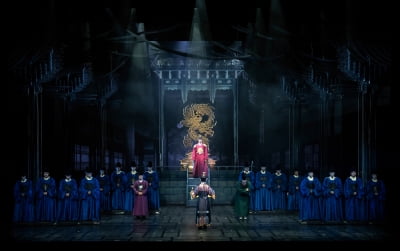ENTERTAINMENT
Chenbaek City files a complaint with the Fair Trade Commission for SM's 'unfair contract'

On the 5th, Baekhyun, Xiumin, and Chan's legal representatives, Law Firm Lin, gave their position regarding this. Law Firm Lin announced, "We filed a complaint with the Fair Trade Commission ( hereinafter referred to as ' Fair Trade Commission' ) for 'abuse of trading position' by SM Entertainment ( hereinafter referred to as 'SM' ) ."
“Although the Fair Trade Commission issued corrective orders against SM twice, in October 2007 and January 2011 , we reported the fact that SM was openly engaging in unfair contract practices in disregard of the corrective orders.” said.
In addition, "We requested a strict investigation into SM's violations and prompt corrective measures to correct them, and furthermore , SM We have requested a full investigation into the exclusive contracts of our celebrities.”
In addition, "failure to correct even after receiving a corrective order from the Fair Trade Commission is a person who fails to comply with corrective measures pursuant to Article 49, Paragraph 1" of Article 125, Item 1 of the Monopoly Regulation and Fair Trade Act, and is subject to 2 years It is a criminal punishment case that will result in imprisonment of less than 150 million won or a fine of less than 150 million won."
Below is the full text of EXO's Baekhyun, Xiumin, and Chen's positions.
I am Lawyer Lee Jae-hak of Lin Law Firm, representing EXO's members Baekhyun, Xiumin, and Chen (Baekhyun Byun, Minseok Kim, Jongdae Kim, hereinafter referred to as 'artists').
On behalf of the client, the legal representative filed a complaint to the Fair Trade Commission (hereinafter referred to as 'Fair Trade Commission') through the electronic submission of the National News Agency yesterday (June 4, 2023) by SM Entertainment (hereinafter referred to as 'SM') for 'abuse of trading position'. filed a complaint against
Through this complaint, we are aware that despite the fact that the Fair Trade Commission has already issued corrective orders against SM twice, in October 2007 and January 2011, SM has been openly engaging in unfair contract practices in ignoring the corrective orders. Reported.
In addition, to the Fair Trade Commission, we requested a strict investigation into SM's violations and prompt corrective measures to rectify them, and furthermore, we requested a full investigation into the exclusive contracts of celebrities belonging to SM.
In fact, three of our client artists entered into an unfair contract that did not reflect the corrective measures that the Fair Trade Commission had ordered SM to take in the past, and were continuously harmed by SM's abuse of their trading position.
Failure to make corrections even after receiving a corrective order from the Fair Trade Commission is a person who fails to comply with corrective measures pursuant to Article 49, Paragraph 1 of Article 125, Item 1 of the Monopoly Regulation and Fair Trade Act, and is subject to a term of 2 years or less. It is also a matter of criminal punishment that is punishable by imprisonment or a fine of 150 million won or less. Below, our legal representative will deliver the detailed position regarding the FTC complaint against SM.
1. SM did not rectify this despite the FTC's decision to ban SM on two occasions in 2007 and 2011.
Up until the FTC complaint, the artists made a really difficult decision after careful consideration of various things.
This is not yesterday or today.
Already in 2007 and 2011, SM, not other companies, has been repeating each of the abuses of trading position for which the Fair Trade Commission has decided to ban the act until today, up to 2023.
On October 8, 2007, FTC Resolution No. 2007-488 (Seokyung 2007 0209), (1) a provision to determine the starting point of the contract period as the debut date, (2) the exclusive contracts of other entertainment agencies in the same industry It was judged that the terms of the contract that were excessively unfavorable to the contract period were unfair.
And SM, as of January 13, 2011, FTC Resolution No. 2011-002 (2009 Seogyeong 2741), (3) to apply an extended contract period to trainees for reasons such as overseas expansion, to prevent acts of penalizing trainees. I was also judged not to do it again.
However, SM completely ignored the official judgment of the Fair Trade Commission and repeated the unfair tyranny by signing exclusive contracts for Baekhyun, Xiumin, and Chen. This was an act that went directly against the FTC's judgment on SM itself, not anyone else, and it is an act that mocks the state's public authority.
In the meantime, the practices and behaviors that SM has been repeating are not just problems with Baekhyun, Xiumin, and Chen's three artists. If you consider many other trainees and artists, the scale of the damage could be enormous. And considering the unfair behavior that will be repeated not only now but also in the future, we couldn't help but step forward from the heart of caring for our junior trainees and artists.
Accordingly, artists Baekhyun, Xiumin, and Chen, with the help of their legal representative, decided to file a complaint with the Fair Trade Commission about SM's abuse of their trading position.
We hope that our efforts and courage will be a small help and hope for the protection of the rights and interests of our juniors and the fair and healthy development of the pop culture industry.
2. Calculating the end date of the exclusive contract from 'the time of debut in entertainment activities' (not from the date of the exclusive contract) is to determine an ultra-long-term exclusive contract that is determined by the agency's discretion, and even though the unfairness has already been confirmed, SM is still We are not following the corrective measures of the Fair Trade Commission.
On October 8, 2007, the Fair Trade Commission Resolution No. 2007-488 (2007 Seogyeong 0209) was for SM, as follows: 『Exclusive contract period ends on the 5th year after the release of the first album』 or 'A role with a supporting role or higher I received an order to take corrective action prohibiting the act of excessively prolonging the contract period by setting it as 'end on the fifth year from the date of appearance'.
Decision No. 2007-488 of the 2nd Subcommittee of the Fair Trade Commission
2007. 10. 8.
Case name SM Entertainment Co., Ltd.'s abuse of trading position
P Seem in SM Entertainment Co., Ltd.
order
1. The examinee shall not engage in an act that gives disadvantage to the counterparty of the transaction by engaging in the following acts by unfairly using his/her trading position while signing an exclusive contract with a singer or actor.
me. An act of extending the contract period excessively by setting the exclusive contract period to 'end on the 5th year after the release of the first album' or 'end on the 5th year from the date of appearing in a supporting role or higher'
However, after SM received the above correction order from the Fair Trade Commission in 2007, they repeatedly presented and forced them to sign exactly the same unfair clauses in their exclusive contracts with Baekhyun, Xiumin, and Chen in 2010 and 2011. (Excerpt from client Byun Baekhyun's exclusive contract below)
<Excerpts from client Byun Baekhyun's exclusive contract>
** The period of '7 years' above is a structure that can be extended additionally by attaching an annexed agreement.
In this way, the act of setting the expiration date of the exclusive contract period to '5 years after the release date of the first album' in case of debuting as a singer or '5 years after the debut date of the first work' in case of debuting as an actor. Counting from the date of debut rather than the date of signing the contract is an unclear concept for the contract period and end, so the agency can arbitrarily interpret the contract and make the contract excessively long. They unilaterally set unfavorable transaction conditions for the artists because they would lose opportunities to work as entertainers by negotiating new conditions or signing new exclusive contracts with other agencies.
The Fair Trade Commission Resolution No. 2007-488 (2007 Seogyeong 0209) on October 8, 2007 judged exactly that.
2007. 10. 8. Fair Trade Commission Resolution No. 2007-488 (2007 Seogyeong 0209) pp. 6-7
The act of setting the expiry date of the exclusive contract with the reporter as 'five years after the release date of the first album' in the case of debuting as a singer or 'five years after the debut date of the first work' in the case of debuting as an actor By using an ambiguous concept of the timing and end of the contract, the examinee may arbitrarily interpret the contract and prolong the contract excessively. It is judged that unfavorable transaction conditions were set unilaterally for the reporter because he would lose the opportunity to work as an entertainer by signing the agreement.
In this way, even after receiving the correction order from the Fair Trade Commission in 2007, SM repeatedly presented and entered into the same unfair clause, which is in accordance with Article 125, Paragraph 1 of the Monopoly Regulation and Fair Trade Act, 'Article 49'. A person who fails to comply with corrective measures pursuant to Article 1, is a criminal punishment issue punishable by imprisonment for up to two years or a fine of up to 150 million won.
3. In the 2007 FTC resolution, it was already judged that the contract period of '5 years from the debut date (not from the contract date)' was excessively long. year' period, which made the contract even more unfair.
In the 2007 Fair Trade Commission resolution above, SM's exclusive contract was compared with the contract period clause in the exclusive contract of another entertainment agency in the same industry.
As you can see below, according to the FTC investigation at the time, (1) other entertainment companies in the same industry did not set the starting date of the contract period as 'debut date' like SM did, but legitimately set it to start from 'the date the contract was concluded' ( 2) The duration of the exclusive contract was 3 to 5 years, less than the contract period set by SM.
As a result of this investigation, the Fair Trade Commission has set the exclusive contract period as 'the end of the 5th year after the release of the first album' or 'the end of the 5th year from the date of appearing in a supporting role or higher' An order was issued prohibiting the act of extending the contract period excessively.
Nevertheless, SM did not rectify this and forced the contract to be signed under unfair contract terms, and as mentioned earlier, it is an act that did not comply with the corrective measures of the Fair Trade Commission and is a criminal punishment issue.
4. SM is violating the Fair Trade Commission's corrective order by using the expedient method of uniformly extending the contract period for reasons such as overseas expansion, which was not confirmed at the time of contract signing.
And SM, on January 13, 2011, FTC Resolution No. 2011-002 (2009 Seogyeong 2741), 『The examinee (SM) signed an exclusive contract with an aspiring celebrity trainee at the time of signing the contract by using his trading position. An order to take corrective action stating that the act of giving disadvantages to trainees, who are the counterparty of the transaction, shall not be repeated by uniformly applying an extended contract period to all trainees without considering the individual circumstances of the trainees, citing reasons such as unconfirmed overseas expansion. also received
In addition, the Fair Trade Commission pointed out the annexed agreements in <Table 3> as shown below in the above resolution in 2011, and concluded that SM is uniformly signing annexed agreements of this type, which is an unfair contract condition.
SM should no longer enter into contracts that violate the corrective action order, and even if it has already been concluded, it must be amended to meet the purpose of the corrective action order. However, before and after receiving the above correction order from the Fair Trade Commission in 2011, SM repeatedly presented and signed the exact same unfair clauses in the contracts with Baekhyun, Xiumin, and Chen in 2010 and 2011.
And, according to the client artists, until recently, SM has been signing an annexed agreement with other artists to extend the contract period for 3 years for reasons such as preparations for overseas expansion.
In this way, even after receiving the above correction order from the Fair Trade Commission in 2011, SM repeatedly presented and entered into the same unfair clause. It is a criminal punishment case that is punishable by imprisonment for up to two years or a fine of up to 150 million won as a 'person who fails to comply with the corrective measures pursuant to Article 49 Paragraph 1' stipulated in Article 125, Item 1 of the Act.
5. Subsequent exclusive contracts that are automatically extended until the album is released are extremely unfair as they do not even set a minimum period limit.
As you can see, the artists decided to calculate the contract period from the debut date, so the trainee period was added to the exclusive contract period, and the additional agreement was extended for 3 years, and the military service period was added. entered into a contractual relationship.
This is very different from what the Fair Trade Commission announced on the basis of the contract period of 7 years in the standard exclusive contract for pop culture artists (singer-centered), and exceeds the minimum reasonable level. The two-year exclusive contract signing period is not enough, so artists are asked to sign subsequent exclusive contracts again, claiming a contract period of at least 17 or 18 years, respectively.
It is pointed out again that the act of signing a follow-up exclusive contract falls under Article 45, Paragraph 1, Subparagraph 6 of the Monopoly Regulation and Fair Trade Act, 'act of trading with the other party by unfairly using one's trading position'. In other words, forcing a long-term period using a follow-up exclusive contract separately falls under 'Forcing Provision of Profits' or 'Provision of Disadvantages (Setting of Disadvantageous Transaction Conditions)' in Attached Table 2 of the Enforcement Decree of the same Act.
And Article 5, Paragraph 1 of the follow-up exclusive contract states, 'This contract... for 5 years from However, if the minimum number of albums stipulated in Article 4, Paragraph 4 is not released within the same period, the contract period will be automatically extended until the fulfillment of this. There is no upper limit on how long it will be automatically extended.
In this way, the provision that the contract period is automatically extended until the number of released albums is filled, and there is no upper limit, is clearly a slave contract, and the legal representative is liable for 'acts of trading with the other party by unfairly using the trading position'. It is pointed out that it is applicable, and the artists are also in agreement.
Also, it cannot be seen as justifiable to try to 'bind' the artists by signing a follow-up exclusive contract for such a long period of time and without an upper limit when the existing exclusive contract has about a year left. SM has not paid artists any down payment for follow-up exclusive contracts.
According to Article 3, Paragraph 2 of the 'Standard Exclusive Contract for Popular Culture and Artists (Singer-Oriented)' announced by the Minister of Culture, Sports and Tourism, if the exclusive contract period is set in excess of 7 years, the singer can cancel the contract at any time after 7 years have elapsed. may be notified to the planner, and the contract is terminated when six months have elapsed from the date the planner received the notice. By the way, SM signed a very long-term contract and tied the artists again for a year or more before the contract ended.
Ministry of Culture, Sports and Tourism Notification No. 2018-47, 2018. 11. 28., enacted
Popular culture artist (singer-centered) standard exclusive contract
Article 3 (Contract Period and Renewal)
② If the contract period pursuant to Paragraph 1 is set in excess of 7 years, the 'singer' may notify the 'planner' of the termination of this contract at any time after 7 years have elapsed, and the 'planner' may notify the 'planner'. This contract is terminated after 6 months from the date of receipt.
Our legal representative believes that the act of signing an existing long-term exclusive contract and an unfair follow-up exclusive contract is also a separate violation of the Fair Trade Act and should be filed with the Fair Trade Commission.
6. We filed a complaint to the Fair Trade Commission with the hope that our little courage would be of help for the establishment of fair pop culture and younger artists.
Despite corrective measures by the Fair Trade Commission in 2007 and 2011, SM has repeatedly engaged in unfair contract practices.
An act like this is an act of ignoring the proper operation of state power, and the damage caused by it has repeatedly occurred to trainees and artists.
Accordingly, artists Baekhyun, Xiumin, and Chen, with the help of their legal representative, decided to file a complaint with the Fair Trade Commission about SM's abuse of their trading position.
We hope that our efforts and courage will be a small help and hope for the protection of the rights and interests of our juniors and the fair and healthy development of the pop culture industry.
2023. 6. 5. (3rd session)
Law Firm Lin
Attorney Jae-Hak Lee
Reporter Yoon Jun-ho, Ten Asia delo410@tenasia.co.kr



